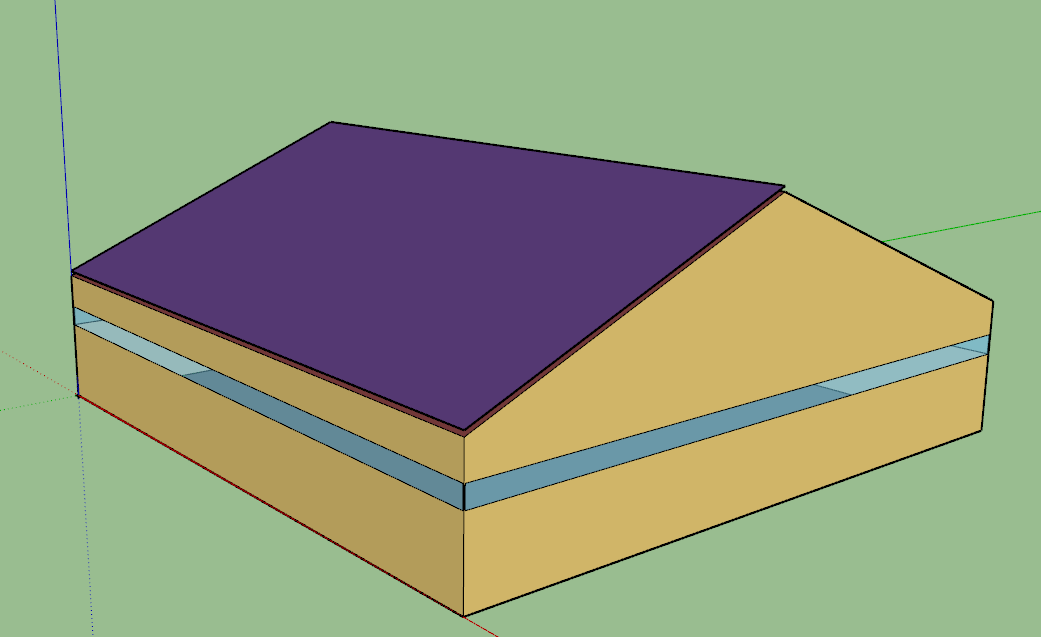Hi everyone,
I am trying to model a solar PV mounted on the rooftop of a ranch house (pitched roof) in EnergyPlus as shown in the image below. I am interested in modeling the impact of BIPV on heating/cooling thermal loads as well as its contribution in terms of electricity generation. I am trying to find the best (most accurate) way to model BIPV (either with air cavity and/or firmly attached) in Energyplus such that it is thermally interacting with the building.

I assume that there are only 2 approaches to model a roof BIPV: (1) through the creation of a shading device (Shading:Building or ShadingZone:Detailed) and then overlap it with solar PV and (2) overlapping the roof surface directly with PV through Generator:Photovoltaic class by selecting the desired roof surface in the "Surface Name" field. (Please confirm!)
The Heat Transfer Integration Mode field under Generator:Photovoltaic class gives an indication that this might be the link between the PV and the building (i.e. related to heat transfer). Is the heat transfer integration mode option helpful to calculate the impact on thermal loads or is it primarily used to calculate the module/cell temperature to estimate the power output from PV? I read @Julien Marrec comments in this link but this was back in 2016, I am not sure if it still applies to the newer versions (v9.1)? specially that one of the example files "GeneratorswithPV" used IntegratedExteriorVentedCavity option for the three Photovoltaic Performance Object Types. (Please clarify!)
I have tried different options and ran multiple tests but nothing seems to give accurate results, I can provide more details if needed.
Any insight would be appreciated, thanks!!
Ammar





